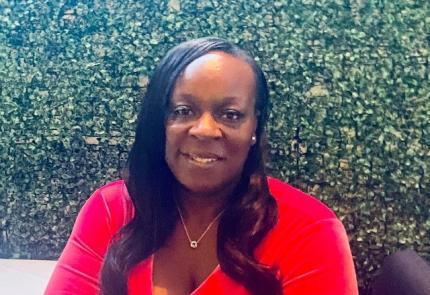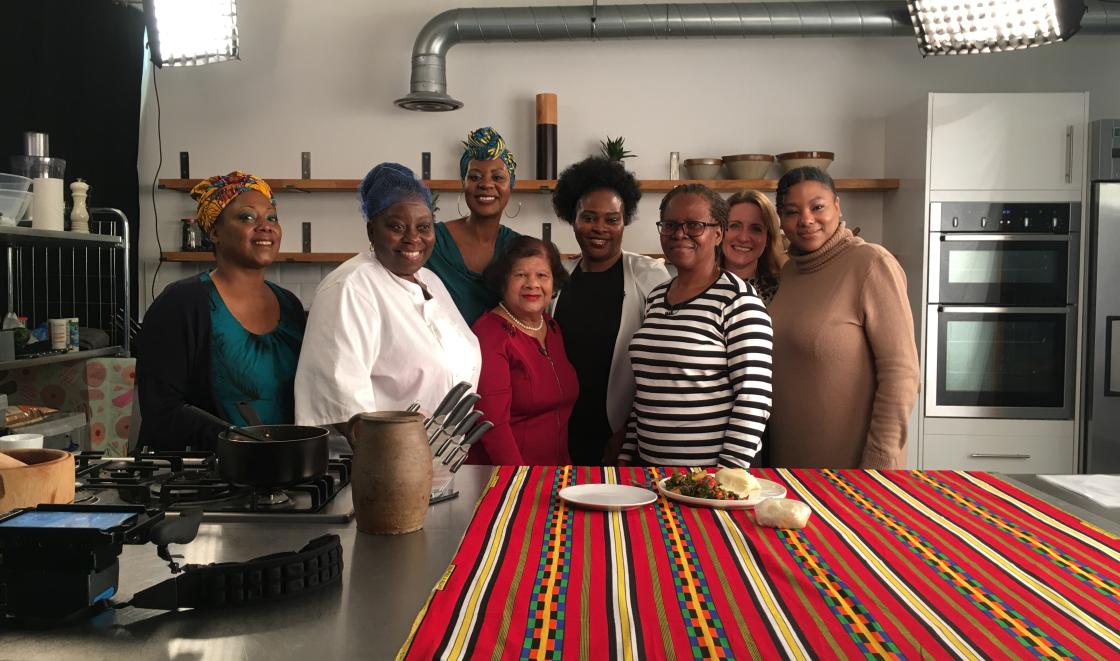Q: How did you hear about Heal-D?
A few months later my diabetic nurse told me about HEAL-D, a new programme in south-east London. I wasn’t overjoyed. I was put off by the group work. I thought it would be intrusive to have to explain your health to everybody. But the thing that sold it to me was when the nurse told me it would be about foods from my own culture, and that I may not have to change my diet that much and would not have to switch from a Black Caribbean/African diet to a Caucasian European diet. I thought I would try it.
Q: Tell us about your experience on the programme
It was very positive, nothing like I thought it was going to be. I found that the group dynamic was very supportive. We were all going through the same condition, just at different points of the journey, but we all had the same aim – to feel better and improve our weight and overall fitness. It was interesting to hear other people’s advice and what they’d been through.
We were so shocked to find out about the different foods, and how much exercise it takes to burn off certain things. It was good to learn that you can change things by the way you cook. All the visual representation was good as well. What was great was that it wasn’t just about diabetes, it was holistic. So you don’t just manage the condition, you think about the other things that it can impact, such as blood pressure, eyes, and HbA1c, which previously didn’t really mean anything to me.
I also really enjoyed the exercise. I didn’t think you could exercise without going to the gym, so that was interesting, and quite tiring at times! I looked forward to the sessions and was quite sad when it ended.
Q: What has been the most helpful thing you’ve learnt?
That you don’t have to change the food that you eat to control diabetes. Yes, you may have to change your portions, and the frequencies, but you don’t have to go from an Afro-Caribbean diet to a Mediterranean diet to get your HbA1c under control. I can still enjoy the foods that I like.
Q: Have you changed the way you live after taking part in the programme?
I am more mindful of what I eat. I try not to mix my carbohydrates – I won’t have plantain and rice and peas all in one meal, I have one or the other. Also the holistic element. If we control our diabetes, this helps to control blood pressure, which helps to control weight. All of this is what we need so that we don’t get any of the more serious diseases that diabetes can give you. I’m living with diabetes, but it’s not living with me, and it’s not controlling my life.
Q: How did you find the experience of learning online?
I loved it – for me it fitted in around my work, and doing it in the week meant it didn’t feel like a chore. Online is easier for people that have children or other responsibilities.
Q: How did you get involved in the project to scale up HEAL-D to other parts of the country (known as NIPP)?
We all had such a good experience with HEAL-D and it changed all our lives for the better. We kept saying why can’t it be done for other people. So when the team said they were doing a project to scale up HEAL-D to people in other parts of the country and they were looking for support, that gave us the incentive to help.
Q: How did you find being part of the NIPP lived experience reference group?
It was a good group. I felt like we were listened to, and our suggestions were taken on board and incorporated. We were always able to give our honest opinions without feeling judged.
Q: Do you have any advice for other people, particularly those from black African and Caribbean communities, who have been newly diagnosed with diabetes?
Everybody’s journey is different, but don’t just concentrate on your own journey, you can also make a difference to your friends and family. If you have the information, then you don't need to change the foods that you eat to be able to control your diabetes. You can still eat them, just maybe not every day, and in controlled portions. Also, we get fixated on things like weight scales and your HbA1c. But you will see other changes in yourself: the changes in your skin, your general health and how you feel, by using the HEAL-D method. When you have a slip up – which you will because we’re human – dust yourself off. That was yesterday, today is a new day and you can start afresh.
Find out more

